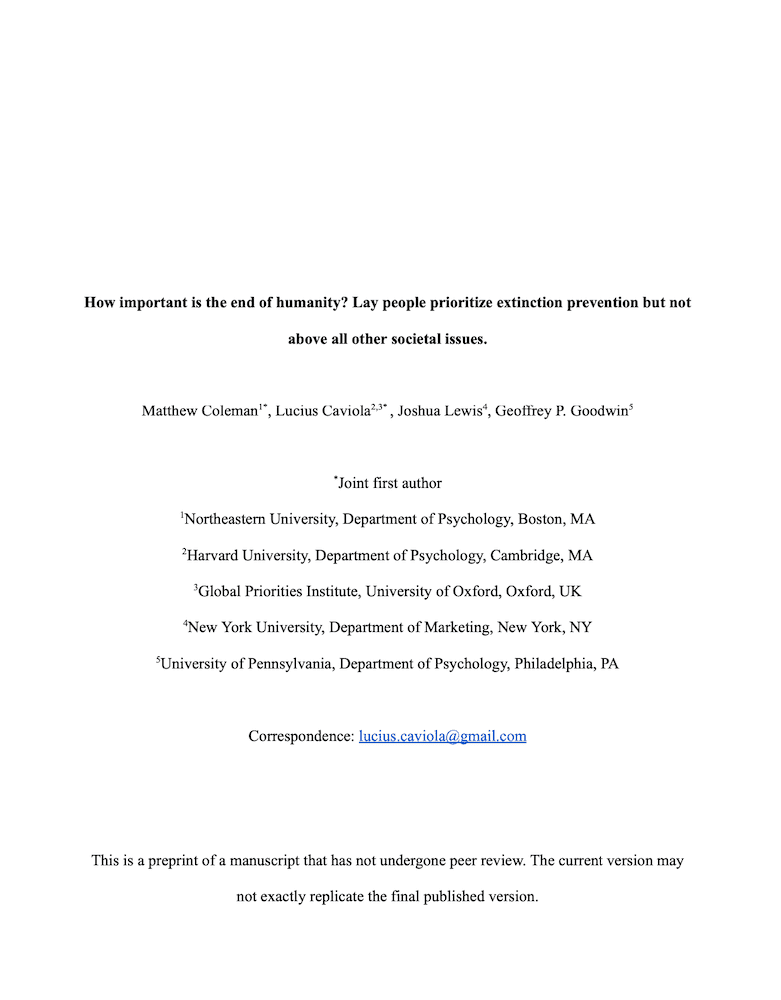Beliefs about the end of humanity: How bad, likely, and important is human extinction?
Matthew Coleman (Northeastern University), Lucius Caviola (Global Priorities Institute, University of Oxford), Joshua Lewis (New York University) and Geoffrey Goodwin (University of Pennsylvania)
GPI Working Paper No. 1-2024
Human extinction would mean the end of humanity’s achievements, culture, and future potential. According to some ethical views, this would be a terrible outcome. But how do people think about human extinction? And how much do they prioritize preventing extinction over other societal issues? Across five empirical studies (N = 2,147; U.S. and China) we find that people consider extinction prevention a societal priority and deserving of greatly increased societal resources. However, despite estimating the likelihood of human extinction to be 5% this century (U.S. median), people believe that the chances would need to be around 30% for it to be the very highest priority. In line with this, people consider extinction prevention to be only one among several important societal issues. People’s judgments about the relative importance of extinction prevention appear relatively fixed and hard to change by reason-based interventions.
Other working papers
How to resist the Fading Qualia Argument – Andreas Mogensen (Global Priorities Institute, University of Oxford)
The Fading Qualia Argument is perhaps the strongest argument supporting the view that in order for a system to be conscious, it does not need to be made of anything in particular, so long as its internal parts have the right causal relations to each other and to the system’s inputs and outputs. I show how the argument can be resisted given two key assumptions: that consciousness is associated with vagueness at its boundaries and that conscious neural activity has a particular kind of holistic structure. …
Aggregating Small Risks of Serious Harms – Tomi Francis (Global Priorities Institute, University of Oxford)
According to Partial Aggregation, a serious harm can be outweighed by a large number of somewhat less serious harms, but can outweigh any number of trivial harms. In this paper, I address the question of how we should extend Partial Aggregation to cases of risk, and especially to cases involving small risks of serious harms. I argue that, contrary to the most popular versions of the ex ante and ex post views, we should sometimes prevent a small risk that a large number of people will suffer serious harms rather than prevent…
Cassandra’s Curse: A second tragedy of the commons – Philippe Colo (ETH Zurich)
This paper studies why scientific forecasts regarding exceptional or rare events generally fail to trigger adequate public response. I consider a game of contribution to a public bad. Prior to the game, I assume contributors receive non-verifiable expert advice regarding uncertain damages. In addition, I assume that the expert cares only about social welfare. Under mild assumptions, I show that no information transmission can happen at equilibrium when the number of contributors…

